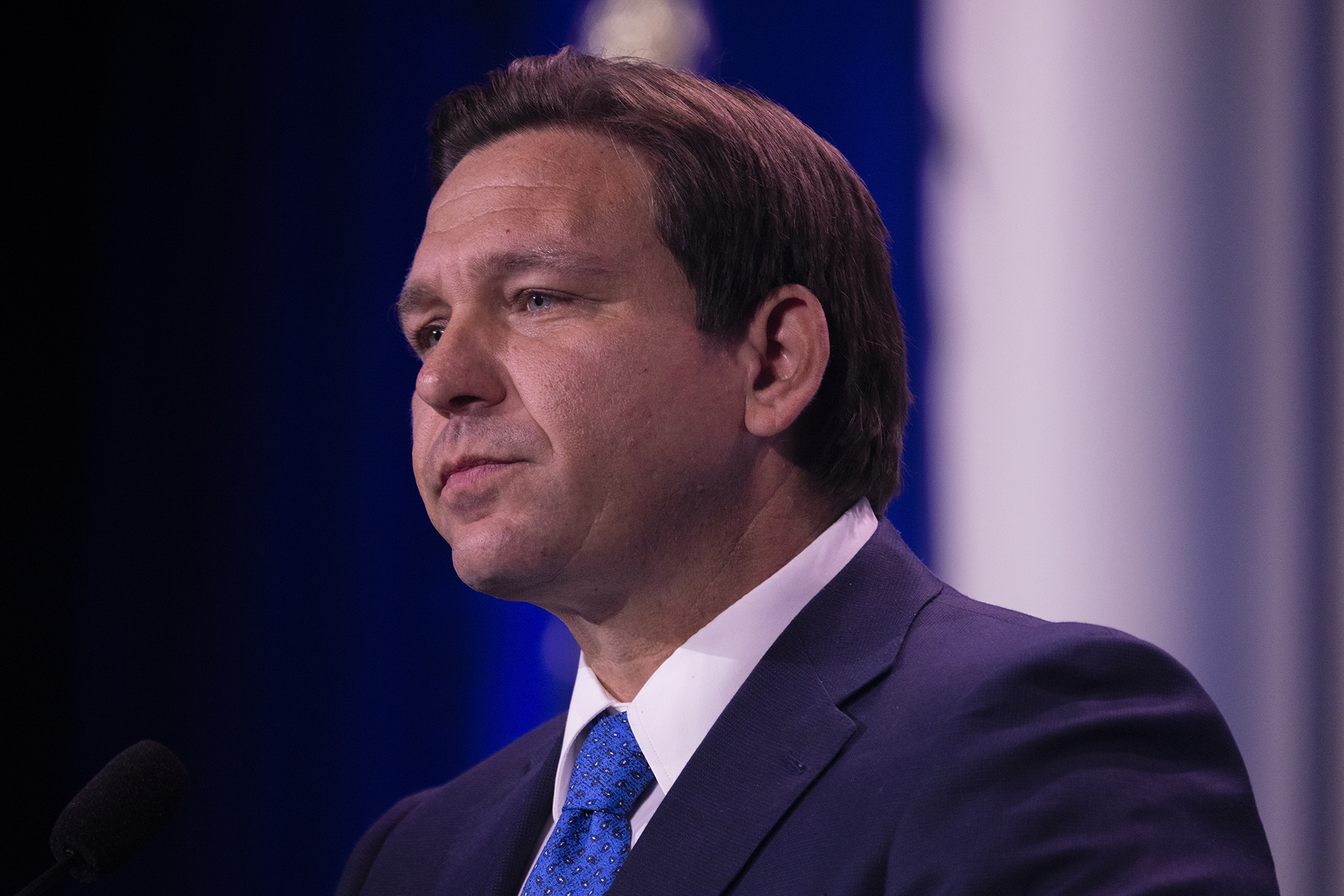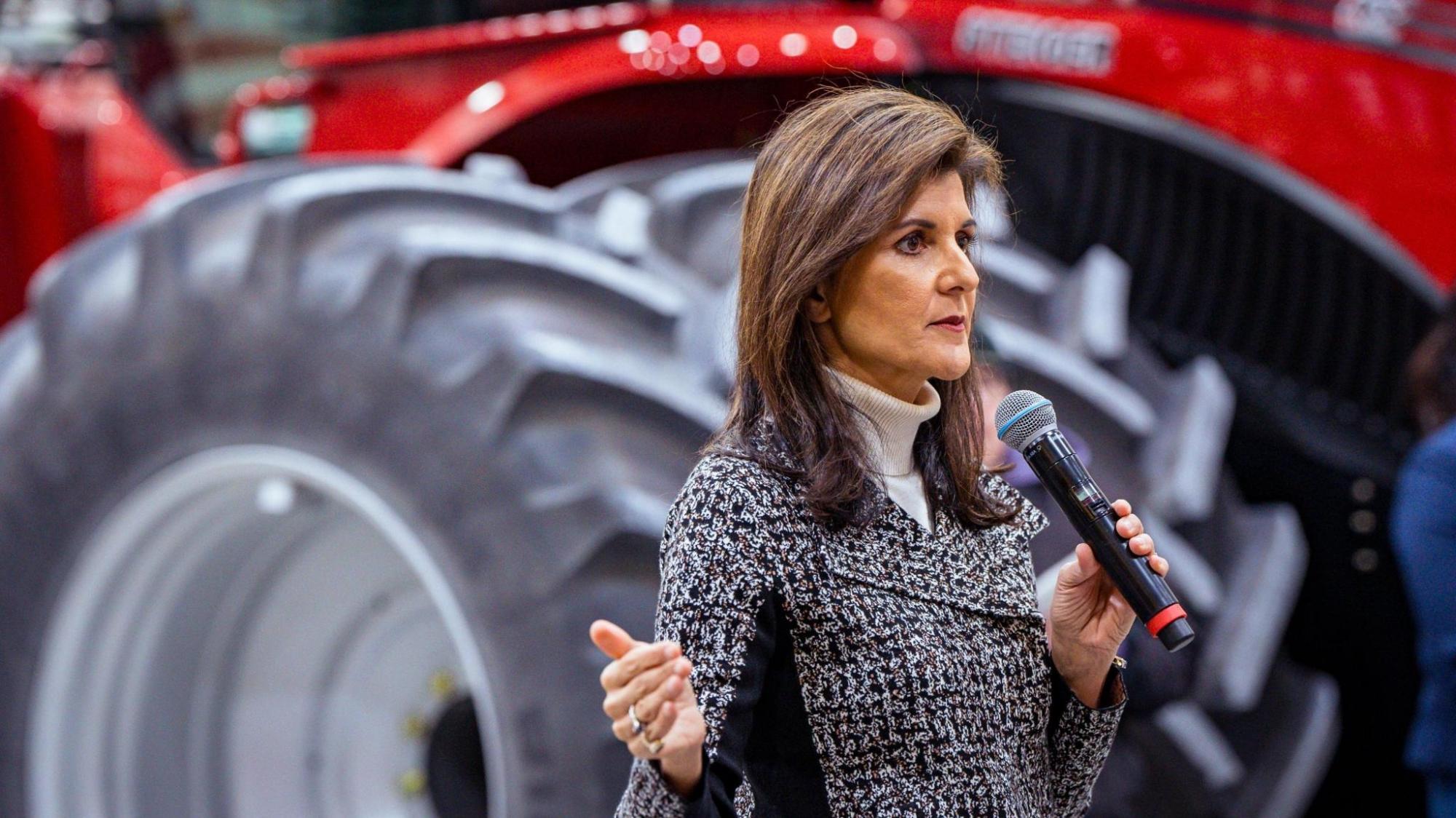Migration, abortion, Ukraine: Key issues among candidates in U.S. presidential election
 RBC-Ukraine collage
RBC-Ukraine collage
Key issues concerning Americans during the current presidential race are the economy, migration, and abortion. Ukraine and foreign policy are not at the forefront. More details on the main election topics in the U.S. are below.
Articles from The Washington Post, The Guardian, The Wall Street Journal, and data from Gallup and Pew Research Center were used in preparing the report.
Today, January 15, the U.S. presidential campaign will officially begin (unlike Ukraine, there is no formal start date for the campaign). In Iowa, the Republican Party primaries will take place in a caucus format - party meetings where delegates will be selected, and internal party voting for presidential candidates will occur.
While the election results are still unpredictable, there is no intrigue during the primaries. Joe Biden is the Democratic frontrunner for a second term, with two formal competitors in the primaries but without any chances of success.
For Republicans, the situation is a bit more complicated, although the nomination of Donald Trump seems almost inevitable. According to recent polls, 60 to 65% of Republican voters support him, while his competitors lag far behind: former U.S. Ambassador to the UN Nikki Haley and Florida Governor Ron Desantis share second-third place with 11-12% support. Businessman Vivek Ramaswamy, who had some momentum a few months ago, now has only 4-5% support. Finally, the last candidate, former Arkansas Governor Asa Hutchinson, polls below one percent among Republicans.
Clearly, the formal suspense about who will be the Republican Party's candidate will last only a few weeks until Trump gathers enough delegate votes at the Republican conference for an official presidential nomination.
Pre-election debates are currently taking place among Republican candidates only, and Trump refuses to participate, apparently seeing no point in arguing with competitors he outpaces by a wide margin in ratings. Moreover, the former president is successfully counterprogramming, going on air during debates and further lowering their ratings among the audience.
However, debates in the U.S., not just during the primaries, are heated. During the debates, Republican candidates constantly resort to personal attacks, dedicating a significant portion of their remarks to personal criticisms of opponents rather than critiquing their political views.
Overall, political polarization in American society continues to escalate, with representatives of the opposing party increasingly perceived not as opponents but as direct enemies. According to a Pew Research Center survey, 62% of Republicans have an extremely negative attitude toward Democrats, and Democrats reciprocate, with 54% having an extremely negative view of Republicans. For comparison, these figures were much lower thirty years ago.
Economy
The main issue that interests Americans in these elections is the state of the economy. In all polls, economic problems for Americans rank first by a wide margin. Obviously, the consequences of the coronavirus pandemic and government anti-crisis measures, which triggered inflation, are still evident.
However, the Biden administration has generally brought the situation under control. During 2023, inflation in the U.S. decreased by almost half in monthly terms, from 6.45% to 3.35%. Unemployment significantly decreased, and the Dow Jones index broke records.

Ron Desantis (photo: Getty Images)
Paradoxically, ordinary Americans continue to believe that Biden is handling economic issues poorly.
"The key question is whether enough Americans think the economy is strong, or think it is working for them in particular," notes The Guardian, emphasizing the importance of voters' subjective perception of economic processes rather than dry figures.
According to Gallup surveys, 45% of Americans rate the state of the economy as poor, and another 33% as satisfactory. Thus, Biden's team's apparent task for this campaign is to overcome the inertia of average voters' thinking and open their eyes to the fact that the economy is actually not bad at all. Trump, on the other hand, can boast that during his presidency, Americans' assessments of the U.S. economic situation were significantly better.
Migration
The migration issue, although it ranks about in the middle of the list of concerns for ordinary Americans, is also at the center of public discussion, receiving as much attention as the economy. According to the calculations of the American company AdImpact, in 2024, the word "border" was used most frequently in political ads, even more than neutral words like "approval" or "message."
Republicans logically emphasize migration issues more than Democrats. Among all voters, the Republican Party's position on this issue is supported by 10% more than the Democrats' approach.
Within the Republican Party, attitudes toward the migration issue differ only in the degree of severity. Traditionally, Trump has set the highest bar – he compares the migration crisis to a military invasion and refers to migrants as "drug dealers, thugs, and terrorists who take over our cities." Trump's team accuses his opponents, especially Haley, of being too soft on migrants and is forced to justify and mention the tough anti-migrant measures she took while governor of South Carolina.
For Biden, the border and migration issue is inherently delicate – a significant portion of his electorate adheres to left-wing views and is fundamentally against any tougher policy on migrants. Although he is willing to take some steps to appease Republicans.
For Ukraine, this story is of immediate importance, as the allocation of a multi-billion-dollar aid package has been stalled for several months due to Republicans' demands for a stricter migration policy. Active peddling of the migration issue by them may complicate reaching a compromise, which has been worked on in Congress for several weeks, thereby disrupting the vote for aid to Ukraine.
Abortions
If the Republicans' rallying cry in these elections is migration, then the Democrats are focusing on protecting the right to abortion. In 2022, the U.S. Supreme Court ruled that the ban on abortions should be regulated at the state level rather than nationwide. Subsequently, many Republican-led states swiftly implemented restrictions, some going as far as a complete ban.
At the Biden campaign headquarters, it was publicly acknowledged at the beginning of the year that the abortion issue would be a key focus for them. This strategic move could yield electoral dividends, as the Democrats' overall stance on abortion enjoys 12% more sympathy nationwide than the Republican approach.
Trump and other Republican candidates generally support a ban on abortions, differing only in their opinions on the gestational period at which they should be prohibited and whether exceptions should be made (such as in cases of rape, incest, or threats to the mother's health).
Defense of democracy
Another key issue taken up by the Biden team is framing the upcoming elections as a battle for democracy. This stance is grounded, especially considering that Trump has yet to acknowledge the results of the 2020 elections, leading to a violent storming of the Capitol by his supporters.
Trump, in turn, continues to portray the upcoming elections as revenge for the "unfairly stolen" victory of 2020 and openly shares his authoritarian plans for the future, including promises to become a "dictator" on the first day of his new presidential term. Trump's plan for a massive purge of the government system from those disloyal to him personally raises even greater concerns.

Nikki Haley (photo: https://www.facebook.com/NikkiHaley/)
The "stolen 2020 elections" theme is convenient for Trump, allowing him to mobilize his base with the narrative of "everyone against us." As a result, around 70% of Republicans in the U.S. believe that Biden falsified the victory in the previous elections. Trump's Republican competitors, such as Haley and Desantis, consider the results of those elections fair but typically try to avoid uncomfortable questions on this topic to avoid upsetting the Trumpist electorate.
Foreign policy
Overall, foreign policy is not a top priority in American elections unless the U.S. is directly involved in an armed conflict at the time. Currently, only 1% of Americans consider the country's foreign policy as their most important issue (for comparison, 16% of voters mentioned inflation).
However, the wars in Ukraine and the Gaza Strip are notable campaign topics. Biden's stance on these issues is known, while Trump is more ambiguous, but Ukraine shouldn't expect anything positive from him. Trump's general narrative boils down to the White House dealing with internal rather than external issues. Just like Trump, Desantis has been quite critical of aid to Ukraine as well. Unlike Haley, who fully supports Ukraine in its fight against Russian aggression. Another Republican candidate, Ramaswamy, consistently tries to outdo Trump in anti-Ukrainian statements, for which he was recently harshly criticized on Republican Fox News.
In any case, although foreign policy was not as actively discussed during the campaign as the economy or migration, it remains an important element of Biden's campaign, especially after the de facto defeat in Afghanistan during his term. Therefore, the White House will continue to keep the Russian-Ukrainian war on the list of priorities until the end of the campaign. However, for ordinary Americans, this issue will still be overshadowed by more critical domestic concerns, and both political camps will build their strategies accordingly.


